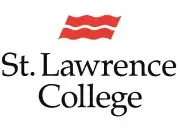Educational programs in transport and logistics
- Advantages of studying transport and logistics
- Formats and levels of programs in transport and logistics
- Top universities in transport and logistics
- Additionally recommended universities in transport and logistics
- How to apply to programs in transport and logistics
- Language of instruction and preparation for programs in transport and logistics
- Tuition fee for programs in transport and logistics
- Scholarships and grants for programs in transport and logistics
- Career prospects after studying transport and logistics
- Is it worth getting an education in transport and logistics
- Frequently asked questions

Master of Business Administration - Shipping and Logistics
University of Europe for Applied Sciences - GermanySea logistics connect a wide range of enterprises and industries.
Businesses need forward-thinking management concepts and experts to implement them to fulfill increased demand and extend supply chain networks.
Hamburg offers forward-thinking MBA classes. The Crossroads of the…

Master of Science - Logistics and Supply Chain Management
Lancaster University, Leipzig, GermanyThe focus of this program is to give students the cutting-edge education they need to succeed in the global logistics and supply chain management (SCM) industry.
The goal is to shape the next generation of logistics and supply chain managers so that they can effectively analyze and solve…

Bachelor of Arts (Hons) - Supply Chain Management
Arden UniversityArden's BSc (Hons) Supply Chain Management program will prepare you for a supply chain or logistics career. This course was built with industry professionals to ensure you graduate with current, marketable skills.
Our logistics and supply chain instructors are industry veterans. This curriculum's…

Bachelor of Arts (Hons) - Supply Chain Management (with Foundation Year)
Arden UniversityThis course is designed to provide you the knowledge and abilities you need to succeed even if you lack the self-assurance or credentials to enroll in an undergraduate degree. The foundation year is perfect if you need help getting started in school and learning study habits.
Apple, Amazon,…

Master of Science - Supply Chain Management and Logistics
Arden UniversitySupply Chain Management and Logistics lecturers have years of experience. The teachers helped the European Commission and UK Government build supply chains commercially and policy-wise.
This course teaches strategic operations skills that are in demand across industries. This course covers…

Certificate - Supply Chain Management
St. Lawrence College, CanadaAbout 767,000 people in a wide variety of jobs and businesses make up Canada's supply chain, making it one of the country's most vital economic pillars. Whether or not this industry is able to successfully address its human resources and labor-market issues will have a significant impact on Canada's…

Certificate - Flight Services
Seneca College of Applied Arts and TechnologyGain an edge in the airline business with this eight-month Flight Services certificate program. Safety and emergency procedures, both on the ground and in the air, are just two of the many topics covered in this class. You will acquire the education, experience, and maturity necessary for a successful…

Diploma - International Transportation & Customs
Seneca College of Applied Arts and TechnologyThis two-year diploma program will give you a thorough grounding in the theory and practice of foreign shipping, customs brokerage, and freight forwarding.
You will learn valuable skills and information that businesses can use to better manage the international flow of goods and services…

Certificate - Supply Chain Management (Global Logistics)
Seneca College of Applied Arts and TechnologyExperts in the field of supply chain management are in greater demand than ever.
In addition to the knowledge and skills you need to get started in the field of supply chain management, this eight-month graduate certificate program will equip you with the technological and analytical know-how…

Bachelor - International Logistics
University of Economics and Human Sciences in WarsawOne of the most vibrant and expanding sectors of the economy is logistics. You can still notice a rise in demand for experts in this industry during the past few years.
The studies' objectives include teaching students how to design logistics processes, address logistical decision-making…
Advantages of studying transport and logistics
Educational programs in transport and logistics form specialists capable of planning, managing, and optimizing the processes of movement of people, cargo, and information flows. This field combines technical, managerial, and analytical skills.
Main advantages:
- High demand in the labor market: globalization of trade and the development of e-commerce require effective logistics and transport.
- Integration of multiple disciplines: programs include elements of economics, engineering, management, information technologies, supply chains.
- Practical orientation: infrastructure, cases, internships, and simulations are often integrated into programs.
- Opportunities for an international career: logistics is a global activity, and specialists can work in different countries.
- Stability and growth: transport and logistics are key components of the economy that always remain relevant.
Formats and levels of programs in transport and logistics
Programs are divided by level and format:
- Bachelor’s (3–4 years): fundamental courses in logistics, transport, supply chain management, economics.
- Master’s (1–2 years): in-depth study of logistics, transport, sustainable development, project management, analytics.
- Doctoral programs (PhD): research in the field of transport, logistic systems, and innovations.
- Preparatory courses / foundation / pre-master's: for those who need academic preparation or language improvement.
- Online and hybrid formats: remote learning or a combination of online and in-person modules, especially at the Master’s level.
- Short-term certificates / courses: modules in local logistics, urban transport, sustainable supply chains.
Top universities in transport and logistics
| Name of university | Name of program | Tuition fee for international students | Comment |
|---|---|---|---|
| Massachusetts Institute of Technology (MIT) | Logistics and Supply Chain Management (MSc) | ~ 55 000 USD/year | One of the global leaders in transport research, close connection with industry. |
| TU Delft | Transport, Infrastructure and Logistics | ~ 20 000 EUR/year | Strong technical profile, known for its engineering school. |
| University of California, Berkeley | Master of Engineering – Logistics and Transportation | ~ 50 000 USD/year | Combination of engineering and management, integration with tech start-ups. |
| KU Leuven | MSc in Sustainable and Smart Mobility | ~ 19 000 EUR/year | Focus on sustainability, transport technologies, and urban logistics. |
| Kuehne Logistics University | Master in Global Logistics and Supply Chain Management | ~ 14 380 EUR/year | Specialized university in logistics, accredited and internationally recognized. |
Additionally recommended universities in transport and logistics
| Name of university | Name of program | Tuition fee for international students | Comment |
|---|---|---|---|
| University of Europe for Applied Sciences (UE) | Master of Science – Supply Chain Management | 12 000 EUR/year | Master’s with a focus on global logistics, sustainable development, different types of transport. |
| University of Economics and Human Sciences – Warsaw | Bachelor – International Logistics | 2 700 EUR/year | Program in Poland oriented toward international logistic processes. |
| Wittenborg University of Applied Sciences | BBA with specialization Logistics and International Trade | 11,800 EUR/year | Combination of logistics and international trade, practical orientation. |
| Seneca College | Certificate – Supply Chain Management (Global Logistics) | 17 627 CAD/year | Certificate module, focus on global supply chains. |
How to apply to programs in transport and logistics
Stages of admission:
- Choosing a specialty and university, studying the curriculum, specializations (transport, logistics, supply chains).
- Collecting documents:
- Valid passport with sufficient validity period for the entire period of study + 6 months
- Secondary education certificate / Bachelor’s diploma with transcript of grades
- Resume (CV)
- Motivation letter
- Recommendation letters (if required)
- Language test: IELTS, TOEFL, Duolingo for programs in English.
- Additional exams / tasks: essay, analytical ability test, entrance interview.
- Submitting the application through the university website or centralized systems.
- Receiving the admission decision and accepting the offer, then obtaining a student visa if necessary.
It is recommended to start 6–9 months before the start of studies to have time to prepare the language and documents.
Language of instruction and preparation for programs in transport and logistics
Most programs are conducted in English. For those whose language level is insufficient, universities offer pre-master's or foundation courses, which include academic English and introductory disciplines in transport and logistics.
Some European universities may have tracks in local languages with transition to English or bilingual formats. In technical specializations, knowledge of mathematics, statistics, and basic knowledge in technologies may be required.
Tuition fee for programs in transport and logistics
Benchmarks:
- USA / United Kingdom: 30 000–55 000 USD / GBP per year
- Europe (continental part): 8 000–25 000 EUR per year
- Asia / Australia and New Zealand: 20 000–45 000 USD / equivalent in local currency per year
Additional expenses:
- Housing: 600–1 500 per month
- Food: 300–600 per month
- Study materials and technical equipment: 100–300 per month
- Transport and insurance: 100–200 per month
- Medical insurance: 500–1 000 per year
Scholarships and grants for programs in transport and logistics
International students can apply for the following types of support:
- Academic scholarships – for outstanding achievements in studies and competitions
- Financial aid – with limited family resources
- Scholarships for motivation / leadership – for participation in projects, initiative
- Grants of universities – internal programs for international students
- Assistant and research positions – helping professors or working in projects
Examples of common names: International Excellence Award, Merit Scholarship, Research Assistantship, Teaching Assistant Grant. Usually applications for such support are submitted together with the program application – 3–6 months before the start of the semester.
Career prospects after studying transport and logistics
Graduates are in demand in the following fields:
- Logistics and supply chain management
- Management of transport systems (auto, railways, sea and air transport)
- Route and transport infrastructure planning
- Management of warehouse and distribution centers
- Consulting in logistics and operational management
- Transport data analytics and process optimization
Companies that can hire such graduates: large logistic operators, transport companies, e-commerce companies, international corporations, manufacturing enterprises, transport holdings.
Internships and practical projects are often included in the curriculum, which gives the opportunity to start a career during studies.
Is it worth getting an education in transport and logistics
Yes, this is a promising field with stable demand. Transport and logistics are connected with key elements of the global economy – supply, infrastructure, trade.
Studying abroad gives access to advanced systems, international cases, networks of professionals. Choosing countries with affordable tuition fee and generous support (scholarships) can make education an effective investment.
Strong schools of transport and logistics are in the Netherlands, Germany, the United Kingdom, the USA, and Asia. Choosing a university with focus on technologies, sustainability, and international logistics increases the competitiveness of a graduate.
Frequently asked questions
1. What skills are required to apply to programs in transport and logistics?
Analytical skills, mathematical abilities, logical thinking, basic understanding of economics and processes of cargo movement are needed.
2. Is it possible to apply to programs in transport and logistics without a technical or economic background?
Yes, many Bachelor’s programs accept applicants with different profiles, especially if they show willingness to study and demonstrate abilities for logical thinking.
3. What is the minimum tuition fee for programs in transport and logistics?
In Europe it can start from 8 000 EUR per year, in the USA or the United Kingdom – significantly higher. Everything depends on the country and university.
4. Where is it easier for international students to get a scholarship for programs in transport and logistics?
Universities of Germany, the Netherlands, Scandinavian countries, Canada, and Australia often offer internal grants and support programs for international students.
5. Is it possible to work during studies on programs in transport and logistics?
Yes – many countries allow part-time employment. Students can also participate in faculty projects or paid internships, which give both experience and income.